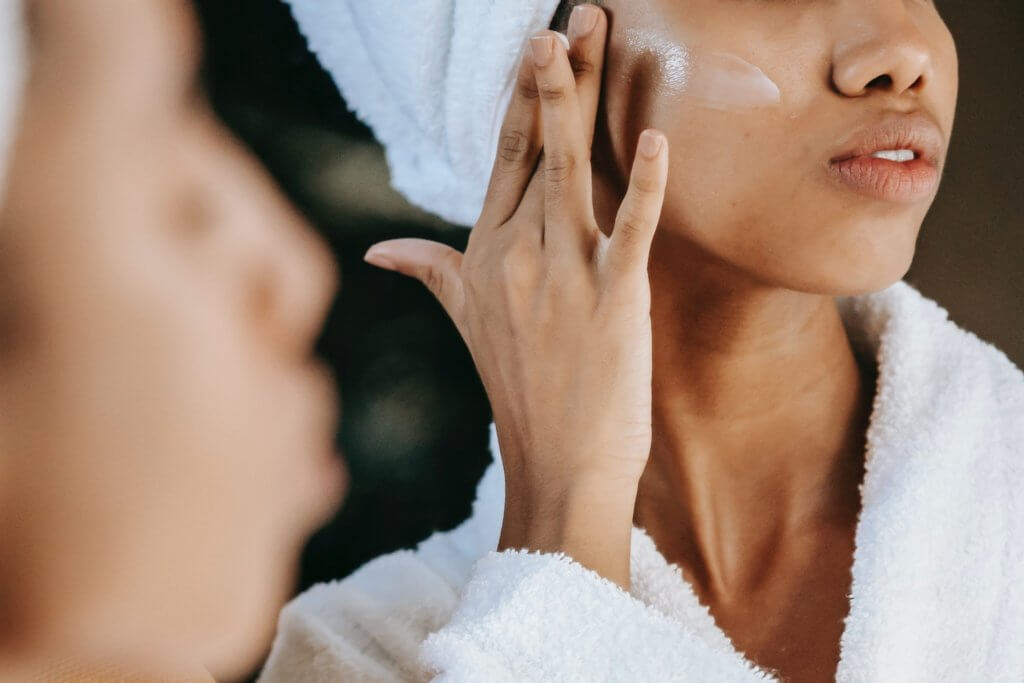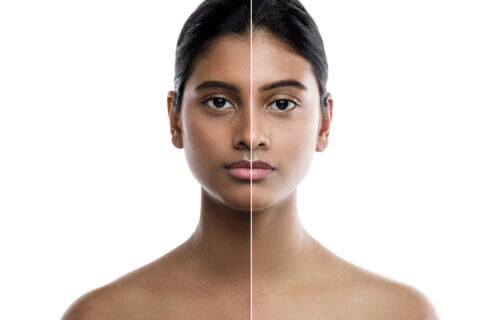CHICAGO — People in the United States, especially women, are motivated to lighten their skin for various reasons. According to researchers from Northwestern University, however, those who use these products aren’t usually aware that there are potential risks to their health. Additionally, the team explored this concept in relation to colorism, which is a system of inequality that runs rampant within many communities of color where lighter skin is perceived as better than darker skin.
“There is this perception that having lighter skin within a group – Southeast Asian or African populations, for example – is looked upon more favorably and manifests by making someone more attractive to a mate or more likely to get a job,” says lead investigator Dr. Roopal Kundu, founder and director of the Northwestern Medicine Center for Ethnic Skin and Hair, in a media release. “The belief is that having lighter skin is tied to personal and professional success.”
The researchers conducted the study by sending an anonymous 19-question survey to individuals of color in the United States. Questions included demographics, colorism attitudes, skin tone satisfaction, and skin lightening habits. There were 455 people who completed the survey. Of this group, 238 were Black, 83 were Asian, 84 were multiracial, 31 were Hispanic, 14 were Native American or Alaskan Native, and five classified themselves as “other.”
Just over 21 percent of participants reported using skin lightening products, and close to 75 percent of them reported using them to treat a skin condition. The rest were using them simply to lighten their tone.
“The most surprising finding was the lack of awareness of ingredients in products being purchased over the counter and their potential detrimental effects,” says lead investigator Dr. Roopal Kundu, founder and director of the Northwestern Medicine Center for Ethnic Skin and Hair. “These products are bought from chain grocery stores, community-based stores or even online and do not undergo the same type of regulation as large-chain store or prescription products.”

What are the health risks?
Previous studies have found that skin-lightening products often have adulterated ingredients, including things like steroids and mercury. One of Kundu’s patients used a bleaching product called hydroquinone all over his face for years, and he now has permanent hyperpigmentation.
Doctors can actually prescribe skin lighteners for people with conditions like melasma, where brown and gray patches appear in the skin. When used under medical supervision, the products can be used safely. According to Kundu, the problem is that most people use them without consulting a medical professional.
Interestingly, those who used the products felt that colorism played a stronger role in their lives than those who didn’t, which is a key societal aspect that researchers and medical professionals should thoughtfully consider.
“As dermatologists, we hope to understand the cultural and societal influences that impact skin health and treatment of skin disease,” explains Kundu. “Cultural mindfulness for clinicians as they get to know their patients battling pigmentary issues allows for the safe, effective, comprehensive and compassionate treatment of dermatological disease across all communities.”

